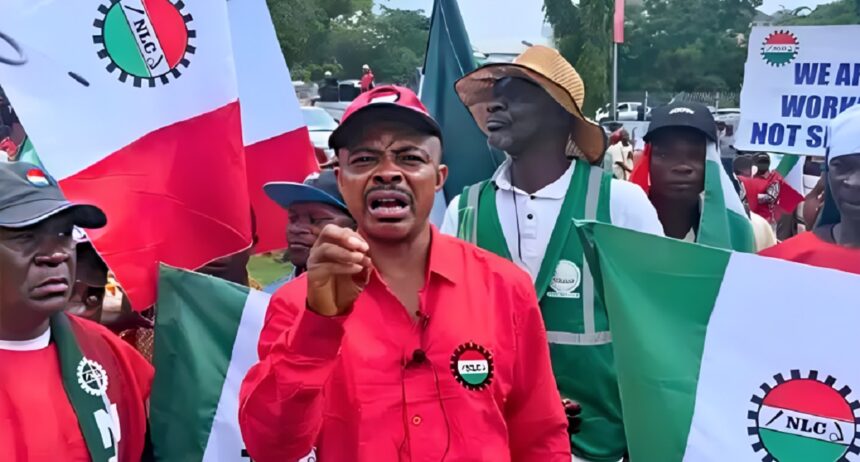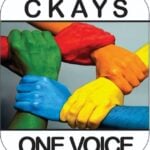…as don advocates review of laws restricting, criminalising civic engagement
President of the Nigeria Labour Congress (NLC), Comrade Joe Ajaero, has alleged that workers in the country, including ordinary citizens, are facing a harrowing situation in which the civic space is being gagged and compressed to the extent that people can no longer express themselves freely without security measures being used to curtail them.
He made this known at the 2025 Pre-May Day Lecture, themed “Reclaiming the Civic Space in the Midst of Economic Hardship,” held at the headquarters of the NLC on Wednesday.
“The civic space is being compressed. Even last two weeks or last week, the people came out to protest; police stopped them in Port Harcourt and other places. These days, protests are being fought, people are not allowing Nigerians to freely protest.
“Even that of minimum wage and hardship we tried and they tried to stop us. Forces are being used to compress the civic space and if you do that, you match the end to democracy, even those sponsoring it will be the potential victims of it.
“I can tell you, all the people there now are beneficiaries of the suffering of some of us, who protested the military stay in office, annulment of June 12 and all that. None of them was known, their names are not even known in their community. If the civic space was closed, none of them will be in National Assembly, none will be a governor today.
“I think they’re having a momentary relief, it’s not going to last. It is the duty of the civil society, the labour movement to make sure that we’ll fight for the civic space to open.”
Ajaero, who noted that student protests have been suppressed and many voices sponsored to work against popular views, said the labour movement in Nigeria would continue to speak truth to power and fight for the rights of Nigerians.
Corroborating Ajaero’s position, the guest lecturer and Professor of International Law, Sir Christopher Chukwuma, stressed the need to review laws and policies—particularly the Cybercrime Act and the Public Order Act—that are restricting and criminalising civic engagement in the country.
Chukwuma expressed concern that the civic space in Nigeria was diminishing, noting that workers and unions no longer had the freedom to express themselves in a country that claims to practise democracy.
He emphasised that a vibrant civic space is essential to the proper functioning of democratic processes.
According to him, democracy in Nigeria is being threatened by corruption, lack of accountability, threats to the lives of civic actors, and the imposition of domestic laws on what he described as “the civic society of decision.”
He said, “We know how they happen in this country. The very moment there is increase in vulnerability and marginalization of certain groups of people, the civic space is dying. There is a problem.”
Chukwuma added that restrictions on peaceful protests, the mobilisation of security forces to threaten those who wish to exercise their rights, control of social media, attacks on media organisations and practitioners, limited access to justice, inadequate protection of human rights defenders, and insults were all threats to the civic space in Nigeria.
He insisted that although economic hardship could suppress the civic space or distract civic actors by shifting their attention to survival, Nigerian workers still have an opportunity to reclaim and revitalise that space.
He said, “There is need for a focus for policy reforms, there should be a need for certain restrictive laws to be amended. The NLC can advocate for changes in certain laws that potentially criminalize civic engagement, such as the Cybercrime Act and the Public Order Act, the NLC can do that.
ALSO READ: Why CVFF should be disbursed at single digit rate — ASA
“The NLC can advocate for reforms that prevent excessive force against civic actors and increase transparency and oversight of security agencies, especially towards human rights defenders or activists.
“There is a need to strengthen the workers’ rights and civic empowerment by reviewing and revisiting laws and regulations that make civic space, ensuring they align with international human rights to their standards. This includes revisiting restrictive legislation, such as the Companies and Allied Matters Act, to protect thoughts of civil society organizations and felicitate their operations. The Congress can do that.
“There is need for implementation measures to enhance citizens’ participation in decision-making processes. These can be achieved through the mechanisms such as town hall meetings. It has always been going on, but encouraging to move on. The Media Rights Agenda is still another aspect of civil society organizations. But there can be collaborations where one finds it difficult, the other helps.”
“The need to resuscitate or reclaim the civic space in order to sustain democracy in Nigeria focuses on the experiences we have had from the past administrations, and it highlights the urgent need for safeguarding freedom of expression, strengthening civil society engagement, enhancing transparency and accountability, especially from the leaders, in order to foster dialogue and reconciliation.
“These measures are crucial for nurturing a vibrant democratic environment that will uphold citizen rights, promote inclusivity, and foster the long-term sustainability of democracy in Nigeria.”
ALSO READ TOP STORIES FROM NIGERIAN TRIBUNE
WATCH TOP VIDEOS FROM NIGERIAN TRIBUNE TV
- Relationship Hangout: Public vs Private Proposals – Which Truly Wins in Love?
- “No” Is a Complete Sentence: Why You Should Stop Feeling Guilty
- Relationship Hangout: Friendship Talk 2025 – How to Be a Good Friend & Big Questions on Friendship
- Police Overpower Armed Robbers in Ibadan After Fierce Struggle






